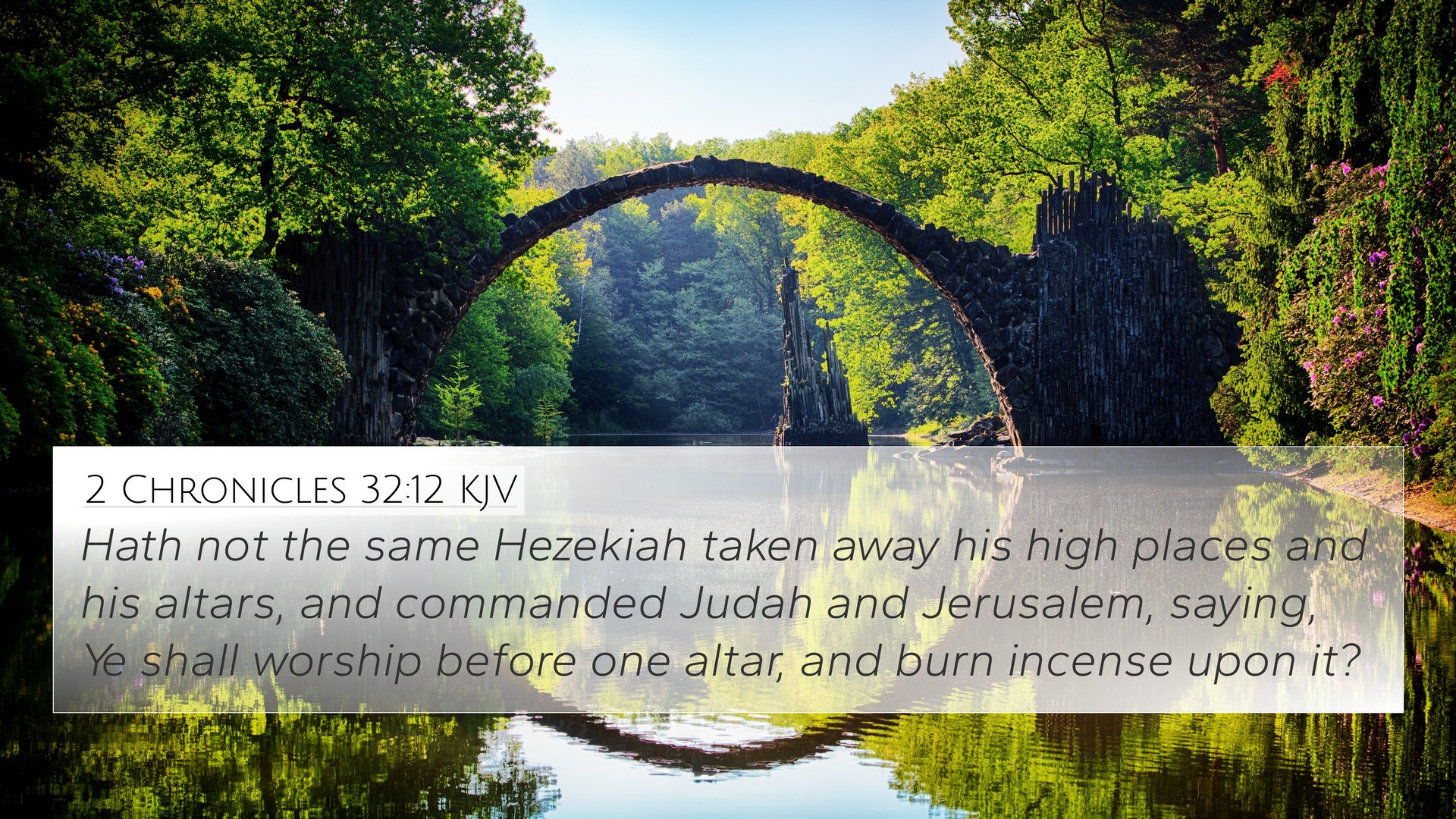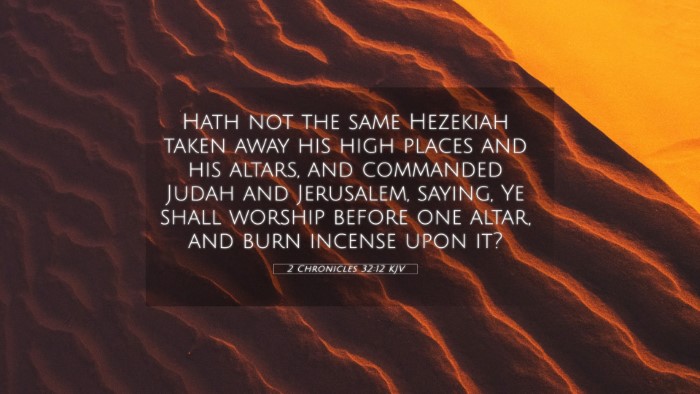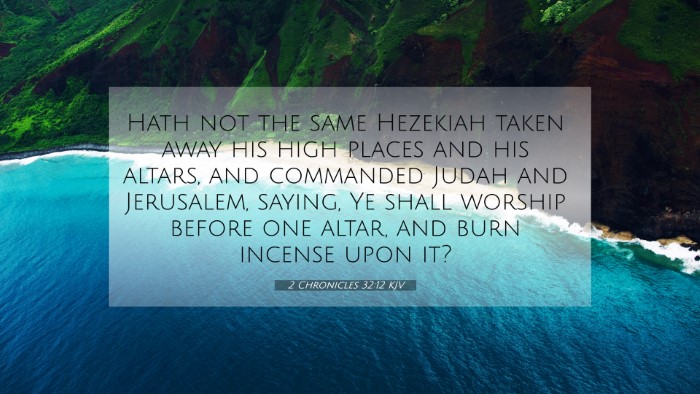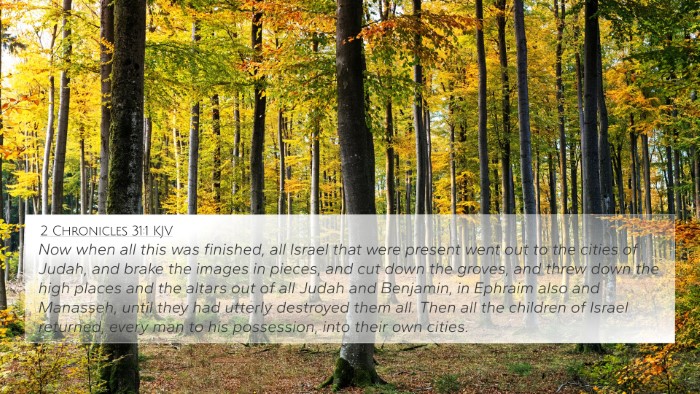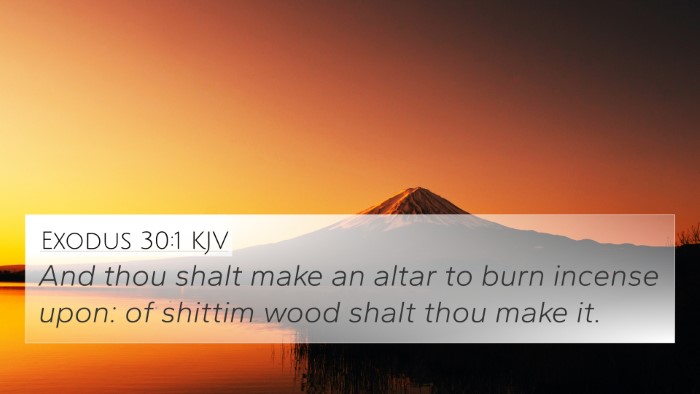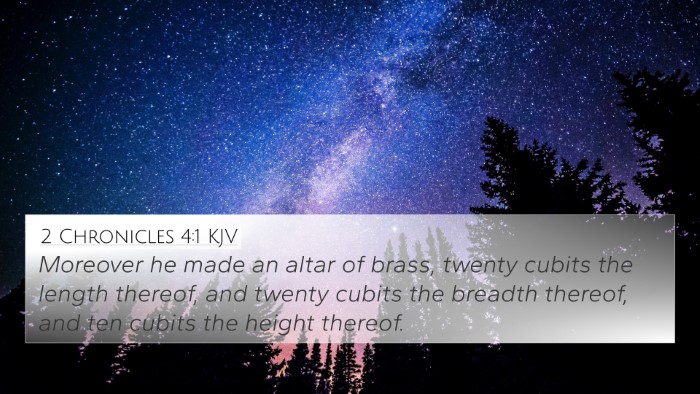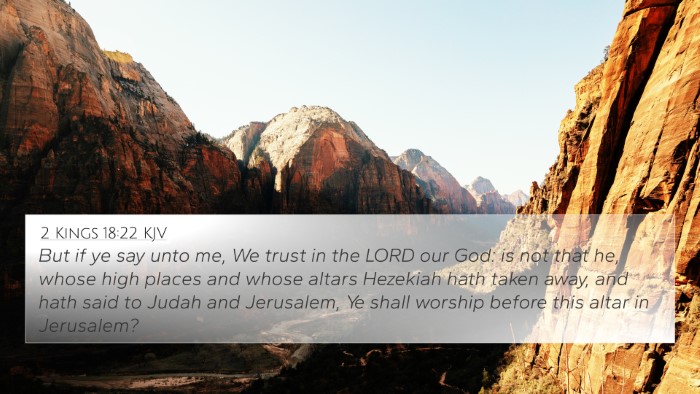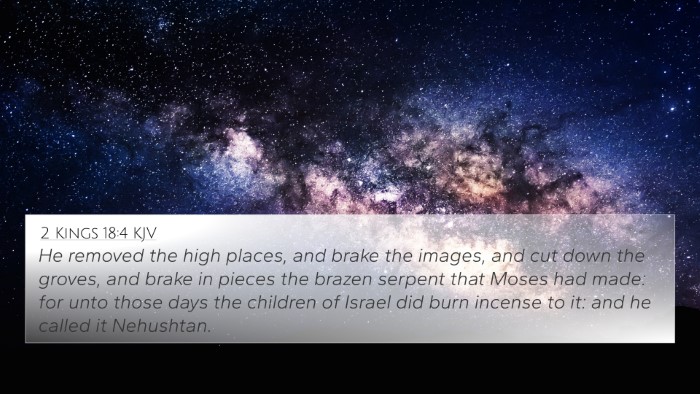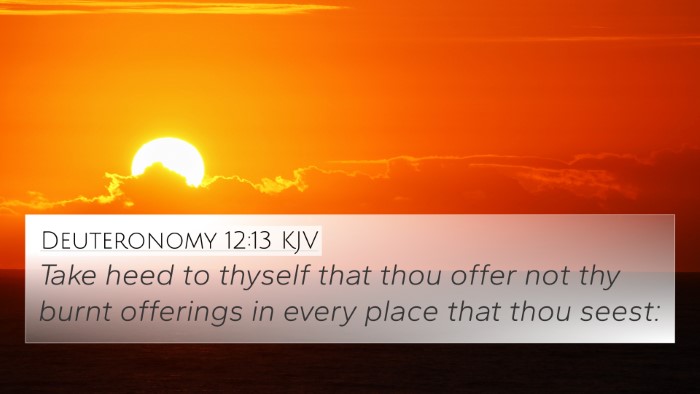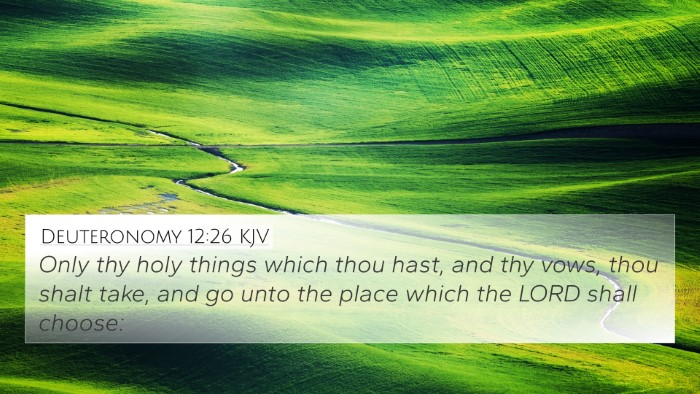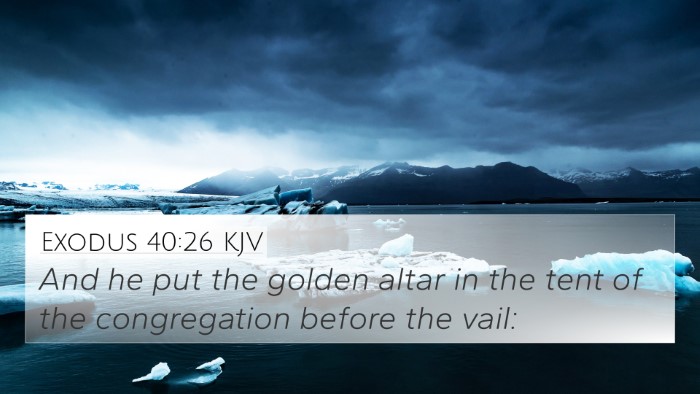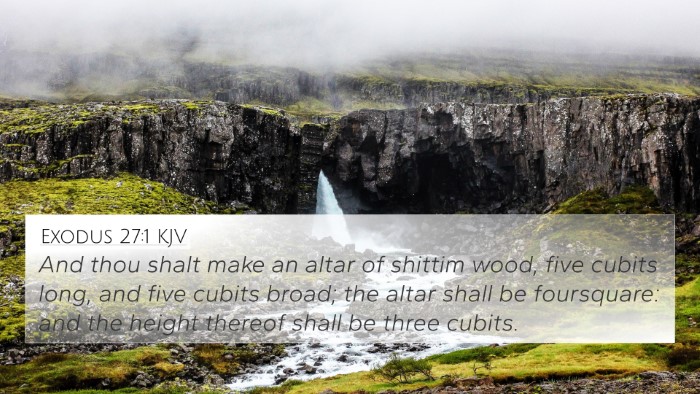Understanding 2 Chronicles 32:12
Verse: "Hath not the same Hezekiah taken away his high places and his altars, and commanded Judah and Jerusalem, saying, Ye shall worship before one altar, and burn incense upon it?" (2 Chronicles 32:12)
Summary of Meaning
This verse presents a critical moment in the biblical narrative surrounding King Hezekiah of Judah. It highlights Hezekiah's religious reforms, particularly his actions against idolatry and his commitment to the worship of the one true God. Through the lens of various public domain commentaries, we can derive rich insights into its theological significance.
Insights from Commentaries
-
Matthew Henry:
Henry emphasizes that King Hezekiah undertook significant reforms by destroying high places and altars dedicated to false gods. This act of worship is pivotal because it symbolizes a return to true worship, recognizing the authority of God. He mentions that by centralizing worship in Jerusalem, Hezekiah sought to unify the nation in faith and obedience.
-
Albert Barnes:
Barnes points out the importance of Hezekiah's reforms in maintaining Judah's covenant with God. He explains that the act of removing high places was not merely a physical act but one that sought to rid the nation of spiritual corruption. This step underlines the necessity of pure worship as commanded by God, adhering to the centralization of worship in the temple.
-
Adam Clarke:
Clarke elaborates on the historical context of this transformation. He states that Hezekiah's actions were not an arbitrary decision but rather a fulfillment of God's commandment to worship only in designated places. Clarke also reflects on the spiritual implications, suggesting that true worship cannot coexist with idolatrous practices, making Hezekiah a model king in terms of faithfulness.
Bible Cross-References
This verse connects strongly with several other scriptures that further elucidate its significance:
- Deuteronomy 12:5-7: This passage commands the Israelites to seek the place where the Lord chooses to put His name and worship there.
- 2 Kings 18:4: This verse describes Hezekiah's actions in detail, noting his destruction of high places and altars as a means to direct worship to Yahweh.
- 2 Chronicles 30:5: This verse highlights Hezekiah's initiative to gather the people for the Passover celebration, reinforcing his dedication to true worship.
- Isaiah 36:1-2: The background of Hezekiah’s reign and his uncertainties regarding the Assyrian threat, this context sheds light on why the reforms were significant to national identity and faith.
- Jeremiah 7:9-10: This verse explores themes of deceptive worship and calls out the futility of worshipping in high places, which Hezekiah's reforms sought to rectify.
- Psalm 132:13-14: These verses celebrate God's choice of Zion as a dwelling place, linking to Hezekiah’s efforts to center worship there.
- Hebrews 9:24: This New Testament reference discusses the true presence of Christ in the heavenly sanctuary, echoing themes of rightful worship established in the Old Testament.
- John 4:20-24: In the New Testament, Jesus articulates the essence of true worship, emphasizing worship in spirit and truth, connecting to Hezekiah's reforms.
Thematic Connection and Conclusion
The reformative actions of Hezekiah as described in 2 Chronicles 32:12 showcase a movement back to God amid cultural distractions. It underlines a key theme in scripture—centralized worship and fidelity to God’s commands. The connections between this verse and others not only enhance our understanding of Hezekiah’s character but also emphasize the importance of true worship, drawing a line through both Old and New Testament teachings.
Further Study Tools
For deeper understanding and connections in scripture, using a Bible concordance, a Bible cross-reference guide, or engaging in cross-reference Bible study methods can be incredibly beneficial. These tools assist in identifying links between verses, themes, and teachings across the scriptures.
